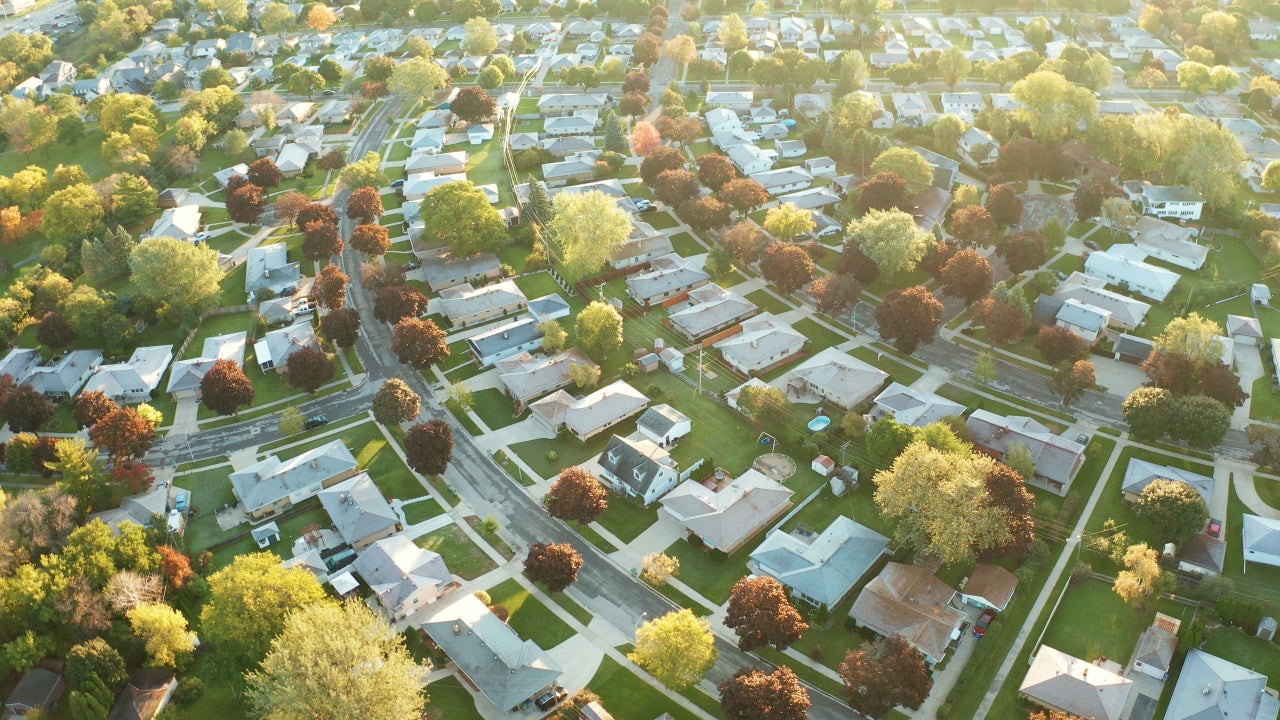Selling a house fast in North Carolina

Do you need to sell a house fast in North Carolina? It isn’t as simple as listing your place, getting the cash and handing over the keys. You’ll need to make sure you’re following the state’s legal requirements, budgeting for closing costs and taking all the right steps for a smooth and successful sale. Read on for the most important considerations as you prepare to list your place in the Tar Heel State.
How fast can you sell in North Carolina?
Homes in North Carolina can take a while to sell, spending a median of 36 days on the market according to October 2023 data from Redfin. If time is not on your side — for example, if you need to relocate immediately or need the money as soon as possible — there are alternative routes for a much speedier sale. Keep in mind, though, that selling faster often means selling for less money.
- Consider iBuyers: iBuyers specialize in making instant home offers, and the majority of the activity happens online. Just input your address, along with some other data, and the company’s algorithm will spit out a ballpark offer. Often, someone will then come check out your home in person. It removes a lot of the traditional work of selling a home — but, because these companies do need to make money, it also removes a lot of your profit potential.
- Look for a cash offer: From individual buyers who are sitting on a lot of liquid assets to real estate investors that will pay in full upfront, cash deals bypass the lengthy process of waiting for a lender to sign off on a buyer’s application for financing.
- Sell as-is: By listing your home in as-is condition, you’re telling prospective buyers that what they see is what they get. So, you won’t have to deal with back-and-forth haggling over the price tag or requests for credits due to any issues with a home inspection.
-
Add quick curb appeal: Simply investing in some easy curb appeal — like repainting your front door, adding a few flowerpots or power washing your driveway — can attract attention from buyers and speed up your timeline
Other things to consider
The first step to selling your home is knowing where you’ll go next. If you’re trying to sell your house while buying another, it can get complicated — especially in a market with low inventory and high interest rates. So, start the process with a firm grasp on whether you will be renting for a while or if you are in a solid enough financial position that you can buy a new home while waiting for this one to sell. Here are some questions to ask yourself before you list your home for sale:
- Is it worth upgrading your home before you sell? Most home renovation projects do not recoup their full costs when you’re ready to sell. For example, data from Angi shows that a minor kitchen remodel only manages to retain around 72 percent of its value. So, before you invest in any costly upgrades, be realistic about whether it will make a meaningful difference in your final sale price.
- What should you repair before you sell your home? Regardless of decor, a home in poor condition can turn off prospective buyers. Some issues, particularly very noticeable ones, would behoove you to fix prior to letting anyone tour your property, but some repairs are not worth bothering with. Your real estate agent can help you decide what’s worth doing.
- Should you stage your home? First impressions are everything in real estate. Hiring a home staging service can go a long way toward making it look more appealing, both in person and in online photos. Even if you don’t hire a professional, make sure to at least clean and organize every room.
- When is the best time to sell a house in North Carolina? The best time to sell a house is when more people are looking to buy. From late spring through the end of the summer, homes in North Carolina (and most places) tend to spend fewer days on the market. Redfin data shows that, while homes spent 32 or 33 days on the market here in the summer of 2023, in February that number was 54 days.
- How should you price your home? Your asking price is the most important number in the home-sale equation. Figure out how much your house is worth by looking at comps — the recent sales of similar properties in your area — to get an idea of what buyers in the market have paid for comparable homes. Your agent can guide the way to a pricing sweet spot for your home.
-
What do I have to disclose? The state of North Carolina requires sellers to complete a four-page disclosure statement that outlines all defects that might impact the value of the home. You’ll need to be honest about anything you know regarding everything from the septic system to the roof. If your property is part of a homeowners association, expect to hand over a copy of the association’s records, as well.
Closing day
In addition to preparing your home for sale, it’s important to understand how much it will cost to sell your house. For starters, if you’re still paying a mortgage, you’ll need to pay it off out of the sale proceeds.
There are also other expenses to cover, including closing costs. These can include:
| Title insurance | In North Carolina, depending on the terms of your contract, you may need to pay for the title insurance policy. The cost varies based on the amount of the loan. |
| Transfer taxes | Sellers typically cover the cost of transferring ownership in North Carolina. The state’s real estate transfer tax is $1 for every $500 of value. So, the transfer taxes on a $500,000 property would be $1,000. |
| Escrow fees | You might need to pay for an escrow account to manage the buyer’s earnest money. |
| Seller concessions | If the home inspection turns up some issues, you might potentially agree to some concessions in an arrangement that helps the buyer cover some of their closing costs. This is very normal, but you don’t have to say yes to a buyer’s request. |
| Attorney fees | Your real estate attorney — and the state of North Carolina does require you to have one — will need to be paid at closing, too. The cost varies based on the attorney’s rate and how much time he or she put into the transaction. |
The biggest line item on a home sale in North Carolina will likely be paying commissions to the real estate agents involved in the transaction. Typically, that means around 3 percent to your agent and 3 percent to the buyer’s agent. So, if you sell a home for $400,000, you would pay $24,000 in real estate commissions. That 3 percent figure isn’t necessarily set in stone, though — there is often room for negotiation.
Moving day
Don’t forget that after closing day comes moving day: You will also need to budget for moving expenses. If you’re moving nearby, that figure will likely be about $1,704, according to HomeAdvisor. However, if you’re leaving North Carolina and trekking across the country, be prepared for a much steeper price tag. And be sure to plan for any short-term rental fees and storage costs if you need to park your belongings while you wait to move into a permanent new place.
Finding a local real estate agent
The best way to maximize the potential profit of selling a home in North Carolina is to work with an expert. Local real estate agents have a finger on the pulse of the market in the city where you’re selling: How many homes are currently listed, what new properties might be coming on the market soon, how buyers are feeling and more. Ask friends and colleagues in the area for recommendations to start your search.
FAQs
-
Yes, the state of North Carolina requires a real estate attorney to handle closings. In addition to having a legal professional check off the final details, it’s smart to hire your attorney earlier in the process to help review the contract on your behalf.
-
Technically, you might be able to sell your home within a week or two if you decide to go with a company that buys houses for cash. If you’re going the traditional route, though, expect to wait a bit longer. Statewide, the median number of days on the market is 35, according to Redfin.
-
ClosingCorp data shows that the average closing costs on a new home in North Carolina total approximately 1.1 percent of the purchase price. On a $350,000 sale, that comes to $3,850. However, keep in mind that this figure represents costs that are paid by both the buyer and the seller, and it does not include the cost of Realtor commissions.
Why we ask for feedback Your feedback helps us improve our content and services. It takes less than a minute to complete.
Your responses are anonymous and will only be used for improving our website.






